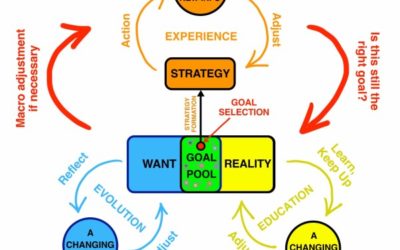
Part 3: The Science
From: https://hbr.org/2016/07/what-great-listeners-actually-do
Of course, there are different levels of listening. Not every conversation requires the highest levels of listening, but many conversations would benefit from greater focus and listening skill. Consider which level of listening you’d like to aim for:
Level 1: The listener creates a safe environment in which difficult, complex, or emotional issues can be discussed.
Level 2: The listener clears away distractions like phones and laptops, focusing attention on the other person and making appropriate eye-contact. (This behavior not only affects how you are perceived as the listener; it immediately influences the listener’s own attitudes and inner feelings. Acting the part changes how you feel inside. This, in turn, makes you a better listener.)
Level 3: The listener seeks to understand the substance of what the other person is saying. They capture ideas, ask questions, and restate issues to confirm that their understanding is correct.
Level 4: The listener observes nonverbal cues, such as facial expressions, perspiration, respiration rates, gestures, posture, and numerous other subtle body language signals. It is estimated that 80% of what we communicate comes from these signals. It sounds strange to some, but you listen with your eyes as well as your ears.
Level 5: The listener increasingly understands the other person’s emotions and feelings about the topic at hand, and identifies and acknowledges them. The listener empathizes with and validates those feelings in a supportive, nonjudgmental way.
Level 6: The listener asks questions that clarify assumptions the other person holds and helps the other person to see the issue in a new light. This could include the listener injecting some thoughts and ideas about the topic that could be useful to the other person. However, good listeners never highjack the conversation so that they or their issues become the subject of the discussion.
Each of the levels builds on the others; thus, if you’ve been criticized (for example) for offering solutions rather than listening, it may mean you need to attend to some of the other levels (such as clearing away distractions or empathizing) before your proffered suggestions can be appreciated.
Related Articles
How to think like a Chef (aka Elon Musk)
Click here to learn how to upgrade your Human Software. OR Click here for a shorter TLDR version 😉 Related Articles
Start With Why
We failed… I started a company in 2012. The company set out to revolutionize behavioral healthcare. Closed the company in 2016. This is my attempt to document and pass on my learnings along the way. My experience spans a range including Entrepreneurship/Product...
On Communication – Part 2
Observation: the facts (what we are seeing, hearing, or touching) as distinct from our evaluation of meaning and significance. NVC discourages static generalizations. It is said that “When we combine observation with evaluation others are apt to hear criticism and resist what we are saying.” Instead, a focus on observations specific to time and context is recommended.



